| Spotlight
When students become volunteers
Tabassum Mokhduma
 'Change', is the word which seems to enjoy the stardom at the moment! It's very easy to use this small one-syllable word, but translating it into action is not that easy. It's tough, but not impossible. And to bring the real 'change', many issues need to be addressed properly, volunteerism being one. 'Change', is the word which seems to enjoy the stardom at the moment! It's very easy to use this small one-syllable word, but translating it into action is not that easy. It's tough, but not impossible. And to bring the real 'change', many issues need to be addressed properly, volunteerism being one.
Volunteerism is a powerful means of engaging people in tackling development challenges, and it can transform the velocity and character of development. It benefits both society at large and the individual volunteer by strengthening trust, cohesion and reciprocity among citizens and by purposefully creating opportunities for participation. Though practiced worldwide for a long time, in Bangladesh volunteerism achieved a new height recently, with the emergence of several student organisations encouraging the youth to develop their leadership skills and volunteering for doing something good. In this story, activities of some of those organisations are highlighted which will surely encourage the youth to involve them in noble causes besides grooming them for the challenging future ahead.
With over 60 years of experience in developing high-potential students into globally-minded responsible leaders, AIESEC (Association Internationale des Étudiants en Sciences Économiques et Commerciales) is the world's largest student-run organisation active in over 1100 universities across more than 100 countries and territories.
With an aim to promote youth leadership to provide a positive impact in society, facilitating international internships for students and recent graduates in the Management, Education, Development and Technical sectors, ensuring participation of youth in a global learning platform like national / international conferences, seminars, forums etc., to fight world issues and organising exchange programmes, it was established in 1948. The Bangladesh chapter was formed in 1997 by some students of the North South University. Later it expanded its network and currently operates in four universities of Bangladesh, other campuses being BRAC University, Independent University Bangladesh and American International University Bangladesh.
Since its establishment, AIESEC Bangladesh has organised many national and international conferences to train and develop its members who also incessantly work on various issues and projects voluntarily. Among their different initiatives, HIV/AIDS Awareness campaign and projects to facilitate opportunities for street children have been highly appreciated.
Shamma M Raghib, an AIESEC Alumni said that her experience in AIESEC has been the most wonderful she has ever hoped for. “It is such an organisation which gears you up for any kind of challenge that real life throws at you; the deeper your involvement, the better is your understanding of the surrounding and realisation of how people live. AIESECers are changing the lives of people through their voluntary work where they cannot only bring smiles in the faces of several underprivileged but also learn form their volunteer experience”, she added further.
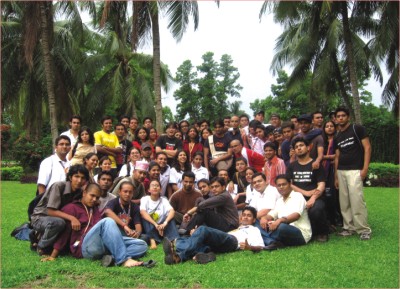
To get involved in AIESEC one has to be the student of one of the four partner universities, nonetheless it is an excellent organisation to do volunteering besides grooming oneself with all the leadership qualities, especially for the students of business background and also if they are willing to know in depth about the corporate world.
Instilling leadership skills in youth to take up the challenge of changing the world for a better future is not an easy task. But it is BYLC (Bangladesh Youth Leadership Center) which took up that challenge and is the first leadership institution in Bangladesh that was founded with the vision of creating a more inclusive, tolerant and just society by training the next generation of leaders. The concept of BYLC was originally developed at Harvard University's Kennedy School of Government in January 2008 and it was established in Bangladesh in 2009 to bridge gaps in society by amalgamating youth from diverse backgrounds, equipping them with leadership, problem solving and teamwork skills, and engaging them in community service and active citizenship.
The persons behind this initiative are none other than Ejaj Ahmad, then a graduate student at Harvard, and Shammi S. Quddus, an undergraduate student at Massachusetts Institute of Technology (MIT) whose 2008 Kathryn Davis Projects for Peace Prize winning proposal for a month-long leadership programme titled “Building Bridges through Leadership Training (BBLT)”, the signature event of this non-profit organisation made it one of the unique organisations of its kind.
Sharing his experiences, Ejaj Ahmad, now the President of BYLC which is the first organisation in Bangladesh that works at the intersection of three different educational systems in the country English medium, Bengali medium and Madrasa; said that it is his desire to serve the country that brought him back after completing his higher studies abroad. “I felt the necessity of a platform that can ensure professional leadership skill building to make the youth able to take up the challenges ahead. There was no structured training programme for those who wanted to do community services”, he said. Though BYLC ensures that much desired platform, but he feels that the attitude of the majority of parents and teachers towards voluntary works is a major obstacle because of which the youth of Bangladesh have yet to do voluntary work like those of the developed countries. “ Most of the parents and teachers think that students should not take part in any extra-curricular activities as they think it will hamper their education, which is totally a wrong notion”, he said further.
As part of its community service, BYLC has organized Health Camps, Swine Flu Campaign and Winter Clothes Distribution Campaign and it looks forward to expanding its voluntary work to reach the disadvantaged section of the country. Along with the youth of the community, the BBLT graduates and facilitators conduct the campaigns
Another organisation that is doing community work silently by involving the young generation is LWM (Liberation War Museum). LWM has quite a large number of volunteers who are mostly students helping the museum in various ways. The primary focus of LWM is to educate new generation with the history of independence so that they can feel proud of their motherland and get imbued with the spirit of patriotism and liberal democratic ideas. They are also encouraged through these programmes to build a tolerant society and learn about basic human rights. They have several projects including outreach programme, freedom festival, mobile museum, theme based exhibitions among others where they learn and share the story of the War of Liberation of Bangladesh. Project “Human Rights and Peace Education in the Light of History of Liberation War” is another innovative initiative of youths supported by LWM where less privileged youths are taught that in the globalised world one of the most important needs of the society is to respect the otherness of the other person. Rezaur Rahman Lenin, a student of Law at University of Dhaka said that volunteering for LWM has been a wonderful experience of his student life. “When we take the classes in schools in remote areas to make the students sensitive towards peace and human rights, we actually learn a lot from them”, said Reza who has been visiting schools in remote areas to materialize this project.
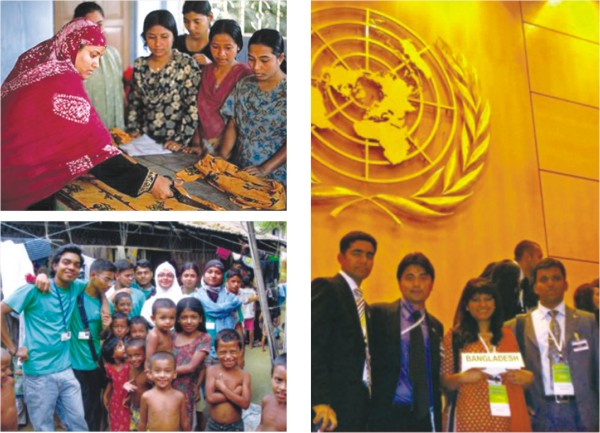
Akku Chowdhury, one of the Trustees of LWM said that one of the major works the volunteers did recently was at the Freedom Festival - Muktir Utsob which is held every year with the participants of the 'outreach' programme. There were over 10,000 students who came to this festival and the volunteers worked tirelessly to make sure all the participants' and guests' needs were taken care of. Besides, in LWM's documentation and collection department volunteers are also involved not only in indexing but also writing and editing the oral history collected from their outreach project participants.
One of the oldest youth organisations that has been successfully doing community work is UNYSAB (United Nations Youth and Students Association of Bangladesh), a voluntary youth and student movement for United Nations. With goals to construct the views and the ideas in cooperation with the purposes and principles of the UN movement, to ensure promotion of public awareness in the activities of the UN and its agencies, to motivate and sensitize the youth in taking positive concerted actions for the global harmony, cultural interactions and the knowledge exchange it started its journey in Bangladesh. It gives an excellent environment for development of organisational and leadership skills, intellectual abilities and research orientation and is dedicated to conveying the voice of young generation regarding current global issues such as MDG (Millennium Development Goals), human rights and development, environment, disarmament, social justice etc. Besides preparing the future leaders, UNYSAB also organises different Stand Up Events to raise awareness, round table discussions on burning issues, poverty eradication campaign, beach cleaning among others.
 Abdullah Hasan, a student of Media Studies and Journalism at University of Liberal Arts Bangladesh said that UNYSAB gave him a wonderful platform to accomplish his dream of working on MDG and children. “I always wanted to work for children and MDG and UNYSAB's various campaign gave me that opportunity”, said Hasan, who aims to apply what he learned at UNYSAB in the near future but firmly believes that without transparency and dedication, one cannot enjoy working as a volunteer. Abdullah Hasan, a student of Media Studies and Journalism at University of Liberal Arts Bangladesh said that UNYSAB gave him a wonderful platform to accomplish his dream of working on MDG and children. “I always wanted to work for children and MDG and UNYSAB's various campaign gave me that opportunity”, said Hasan, who aims to apply what he learned at UNYSAB in the near future but firmly believes that without transparency and dedication, one cannot enjoy working as a volunteer.
Another international volunteering campaign is the United Nations Volunteers (UNV) programme which is the UN organization that contributes to peace and development through volunteerism worldwide. UNV contributes to peace and development by advocating for recognition of volunteers, working with partners to integrate volunteerism into development programming, and mobilising an increasing number and diversity of volunteers throughout the world. Based in Bonn, Germany, UNV is currently active in 140 countries. It is represented worldwide through the offices of the United Nations Development Programme (UNDP). Through UNV, one can lend his/her voluntary services to the people in need in the remotest part of the world. UNV embraces volunteerism as universal and inclusive, and recognises volunteerism in its diversity as well as the values that sustain it: free will, commitment, engagement and solidarity. Besides, UN also provides online volunteering facilities. Volunteerism got a new dimension here as UN online volunteering gives the opportunity to help make a difference in peoples' life through internet even from home. It is considered one of the leading online volunteer groups in the world.
Last but not least, the organisation that stands out from others for its uniqueness is the organisation which is not only regarded as the largest volunteer group of Bangladesh but also known for being behind largest anti-corruption social movement of the world. Yes, it is all about YES (Youth Engagement and Support). If Bangladesh has the worst record of being the most corrupt country of the world several times, then it is the youth of Bangladesh who have been working diligently to eradicate corruption from its root and the YES members once again proved this through their commendable work.
“Invincible Youth Will Surely Resist Corruption” with this slogan Transparency International Bangladesh (TIB), the largest national chapter of Berlin based Transparency International (TI) started this programme back in 2006, which consists of TIB's volunteers, working youth and students of different youth, cultural and sports organisations.
Through different leadership training, TIB has built the YES membersin such a manner so that they can work efficiently in the local and national level to inform the youth society about democracy in educational and professional field; importance of honesty, modesty, self dependency and not to mention encouraging them against corruption. The major working areas of YES are local government, health and education sector. By regularly organising Satellite Advice and Information Desk to disseminate necessary information to the general people through several awareness campaign YES members carry on their work.
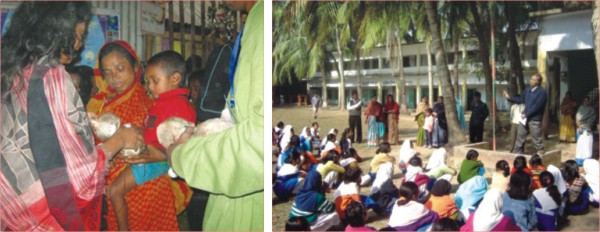
Mokarramus Shaklan, a LLM student at University of Chittagong has been working as YES member for more than three years and he said that YES gave him the opportunity to reach the grassroots people and understand their need which is very important to change peoples' lives. TIB believes that in the near future YES will work to create new young leaders who can definitely lead the anti-corruption movement in Bangladesh.
There is no need to be powerful or rich enough to be a volunteer and to provide community service. All that is needed is the strong will to do something good and different to bring smiles on somebody else' face who is not lucky enough to enjoy all the basic needs of life. Trust me, the pleasure of bringing the hint of a smile on a person's face is priceless!
Details about the abovementioned organizations are available at http://www.aiesec.org/bangladesh, http://www.bylc.org, http://www.liberationwarmuseum.org, http://www.unysab.org, http://www.unv.org, http://www.onlinevolunteering.org and http://www.ti-bangladesh.org/tibyes
In conversation with Riaz Hamidullah:
Each of us must act, walk on our soil barefoot
Interviewed by Tabassum Mokhduma
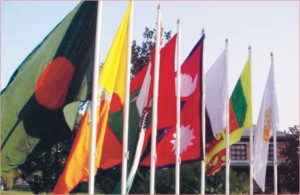 Riaz Hamidullah is a mid-career diplomat from Bangladesh, currently serving at the SAARC Secretariat (Kathmandu, Nepal) as Director (Agri. & Rural Dev. & SAARC Dev. Fund). From a very young age till date, he has been trying to see the world with his strong inner-eye and do the best he can. Inspired by the values of volunteerism, he shared his very personal stories. Here are the excerpts of his interview taken through e-mail for Star Campus. “As I grew up in 70s and 80s, I came across an interesting mix of people from grassroots: at Grade Eight, I traveled to Brahmanbaria to meet Biswaranjan Sen, an octogenarian Gandhian. After SSC, for two weeks, I walked up to BIRDEM and volunteered to assist them compile the list of poor who were receiving insulin gratis. Miles away though, Akhter Hameed Khan was a great inspiration” with this, Mr. Hamidullah started sharing his very own experiences. “Much later, scouting afforded me more opportunities to see lives and livelihoods of ordinary young folks”, he said. Riaz Hamidullah is a mid-career diplomat from Bangladesh, currently serving at the SAARC Secretariat (Kathmandu, Nepal) as Director (Agri. & Rural Dev. & SAARC Dev. Fund). From a very young age till date, he has been trying to see the world with his strong inner-eye and do the best he can. Inspired by the values of volunteerism, he shared his very personal stories. Here are the excerpts of his interview taken through e-mail for Star Campus. “As I grew up in 70s and 80s, I came across an interesting mix of people from grassroots: at Grade Eight, I traveled to Brahmanbaria to meet Biswaranjan Sen, an octogenarian Gandhian. After SSC, for two weeks, I walked up to BIRDEM and volunteered to assist them compile the list of poor who were receiving insulin gratis. Miles away though, Akhter Hameed Khan was a great inspiration” with this, Mr. Hamidullah started sharing his very own experiences. “Much later, scouting afforded me more opportunities to see lives and livelihoods of ordinary young folks”, he said.
Such interaction and exposure proved life-enriching and provoking. In later years, he realized, every individual rich or poor, urban or rural, is conditioned by a unique combination of space, time and life-experience. “A greater involvement with them not only can and do embolden our view of life, and thereby 'career', it leaves an uncanny sense of satisfaction i.e. of 'self-less giving'. Eventually one can sense how 'Less could be More'”, he continued, adding further he said, “Such used to be treasured in our part of the world, as part of the oriental values or, the sense of collective being. In the larger society, as people could not involve to a wider extent, they would revert the selfless benefactors for their acts”.
“In recent times, I often accost young people interested in 'volunteerism' so that it can add to their credential! That's just not desirable. As a society grows, so should increase the extent of volunteerism and philanthropy. Spread and variety of family endowments and philanthropic organisations in the West should surely illustrate that. Each of us should not subject himself/herself to cynical criticism and isolation paradox i.e. 'why should it be me, let someone else take care of the common problems'”, he further added.
“Point is: each of us must act, walk on our soil barefoot. Step beyond our usual confines, in our own self-interest. If we are to look for any mortal gain at the least, a voluntary act gains us insight into real life: one learns to deal with raw emotions, in natural setting. The conviction gathered is profound. Best of classroom setting can't offer that often. And volunteerism is not to be seen as a function of money, but of spirit. It must be viewed beyond the narrow confines of Corporate Social Responsibility (CSR)”, he said boldly.
But perhaps, his experience of working closely with the youth in different times helped him to ascertain the potentials within the youth of our country. “Within the Government, as we were looking for partnering with an innovative youth platform in course of organizing the First SAARC Youth Camp (Savar, December 2007), I learnt of UNYSAB. Till then, UNYSAB's forte was essentially to organise Model UN Debate, bringing together students from Dhaka-based middle and high schools. Working and interacting with them, I realised, they and the platform have a much larger potential for the same can well be taken to schools in major district towns across Bangladesh and gradually beyond”, he said.
When asked about the role of the government to encourage volunteerism he said, “In propagating volunteerism, it's not a government rather the society to take the lead. At the best, government can lay out the needed encouraging policies. If government is to run voluntary movement or scheme, it can lead to distortions in spirit and eventually leave adverse products. And, more and more non-governmental stakeholders take lead in volunteerism, better it is for a society - be in developing or developed world”, he added further, concluding with the hope that today's youth will surely try to volunteer good social causes and appreciate the values of it.
“There is no time limit to be a volunteer”
Dr. Iftekharuzzaman
Interviewed by Tabassum Mokhduma
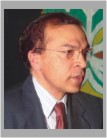 For any nation, emerging youths are the biggest hope it can expect. When all the effort fails, it is always the youth who lit the candles of hope. Youths can surely achieve anything they want and they have got all the potentials needed to fight evil powers as the history proudly portrays youths' power in the field of social movements. And it is the youths, who can change the whole world by volunteering. In his recent interview with Star Campus, Dr. Iftekharuzzaman, Executive Director of Transparency International Bangladesh (TIB), the parent body Youth Engagement and Support (YES), speaks out about different issues related with youths and volunteerism and told how youths can change the world. For any nation, emerging youths are the biggest hope it can expect. When all the effort fails, it is always the youth who lit the candles of hope. Youths can surely achieve anything they want and they have got all the potentials needed to fight evil powers as the history proudly portrays youths' power in the field of social movements. And it is the youths, who can change the whole world by volunteering. In his recent interview with Star Campus, Dr. Iftekharuzzaman, Executive Director of Transparency International Bangladesh (TIB), the parent body Youth Engagement and Support (YES), speaks out about different issues related with youths and volunteerism and told how youths can change the world.
“We always say that youths are the change makers, but to groom them properly so that they can be true change makers, we should work from the scratch”, Dr. Zaman started to share his views on youth when asked about youths' role for a better world. He added that it is very important to train them properly so that they can head for proper way to build a better society. Highlighting the importance of volunteerism he said, “There is no time limit to be a volunteer but perhaps student life is the best moment to do voluntary works.” Citing that working with volunteers is no less than a challenge, Dr. Zaman said that it has always been a pleasure for him to work with the youths who willingly volunteer for good causes.
He said that leadership remains one of the most relevant aspects of the organizational context and if we expect youths to do voluntary works and lead the country properly in an organized manner in near future then we must ensure proper environment for them and for that we need to groom the potentials and instill integrity in them. “Maintaining absolute integrity is the bottom line rule for any leader but you have to have the will so that you can develop your integrity”, he said further.
When asked about YES movement, he said that corruption is the root problem of our society and YES is working to eradicate corruption from society. “Though our main focus is corruption, but we work on other issues as well which are also the by-product of corruption”, he said, adding further that corruption is responsible for violation of different rights of human being.
Giving importance to women's empowerment he said that it is very important to involve the womenfolk in different sphere of society. Sharing that in YES it is mandatory to include at least 30% female he said, “It's not at all possible to go ahead by leaving the females behind and it is really important to ensure proper environment to encourage women to take the leadership”.
He firmly believes that if we cannot believe in the values of volunteerism, no campaign will work. “We do many awareness programmes, we say many good works in public, but if we do not practice what we preach, then there will be no development”, he said.
He said that though different organisations are volunteering for different issues but the core values are same, it is all about easing the sufferings of the mass people.
Youths are not only the future of the world; they are also the present of this world. He said that to make the future a brighter one, we must take care of their present cautiously. “We need to give the youth proper platform so that they can flourish. It's very easy to expect from them, but we should never forget that we should give them necessary time to prove themselves.” He ended with the hope that being inspired by the principles of volunteerism, today's youths will fight all the evils of the society to make the world a better place to live in.
|

